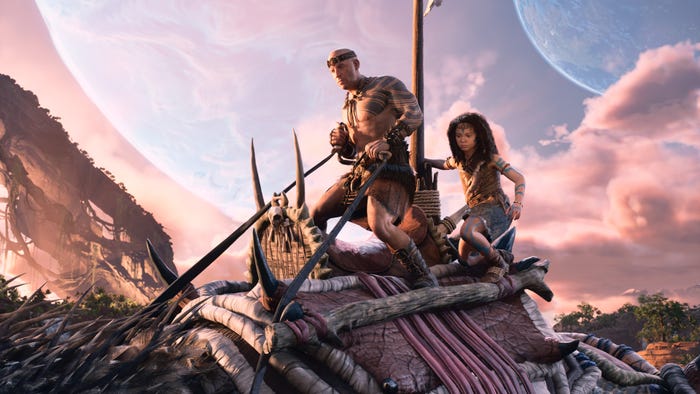Video game retail sales declines are finally slowing down - sort of
The horrendous monthly declines for retail video game sales can't continue forever, right? Gamasutra analyst Matt Matthews digs into the numbers to show that we're finally starting to level of -- sort of.

For a while now, I've been harboring the notion that the retail video game industry isn't so much in utter collapse as retreating quickly to a lower steady state. In a sense, the industry was running all-out for a few years when newly initiated video game consumers were flush with money and demanded Wii games and music games as fast as they could be delivered, all atop a bedrock level of sales to the heavy-spending veteran consumers. When consumer interest shifted, that easy money fled and much of what remained was that veteran bedrock. Below that level, I believed, sales were unlikely to erode further until a new generation of hardware ushered in day-one access to new releases as digital purchases. Then, perhaps, retail would reset to yet another lower level, perhaps one that would persist for several years. So, when the UK and U.S. retail software markets seemed to fall off a cliff last July and August, I looked forward to full results for those months this year. Perhaps, if my guess were right, we could see the market level off. In the UK that kind of did happen, since every month this year had seen a 25 - 38 percent decline for software at retail, but then in July the market was down only 20 percent and in August that improved to a decline of a mere 7 percent. This is illustrated in the figure below.  What happened in the UK to cause the turnaround? Consumers snapped up a sequence of big releases including Sleeping Dogs (Square Enix), New Super Mario Bros. 2 (Nintendo), LEGO Batman 2: DC Super Heroes (Warner Bros. Interactive), London 2012: The Video Game (Sega), Darksiders II (THQ), and Guild Wars 2 (NC Soft). Of course, the launch of New Super Mario Bros. 2 roughly coincided with the launch of the new Nintendo 3DS XL model, so that also probably helped boost Nintendo 3DS software sales in general. Let's be clear, however: so far the rate of descent has slowed dramatically. The UK retail market is still contracting, but it's no longer in the terrifying free-fall we've saw for the first six months of the year. In the U.S., however, the effect of leveling off isn't as pronounced. Just look at the graph below and compare to the one above for the UK.
What happened in the UK to cause the turnaround? Consumers snapped up a sequence of big releases including Sleeping Dogs (Square Enix), New Super Mario Bros. 2 (Nintendo), LEGO Batman 2: DC Super Heroes (Warner Bros. Interactive), London 2012: The Video Game (Sega), Darksiders II (THQ), and Guild Wars 2 (NC Soft). Of course, the launch of New Super Mario Bros. 2 roughly coincided with the launch of the new Nintendo 3DS XL model, so that also probably helped boost Nintendo 3DS software sales in general. Let's be clear, however: so far the rate of descent has slowed dramatically. The UK retail market is still contracting, but it's no longer in the terrifying free-fall we've saw for the first six months of the year. In the U.S., however, the effect of leveling off isn't as pronounced. Just look at the graph below and compare to the one above for the UK.  With the exception of May which had sales down only 16 percent, every month prior to July had seen sales down between 24 and 42 percent, much like the UK market. However, the market was still down 22 percent in July and 12 percent in August. I believe part of the difference we're seeing is the way in which Sleeping Dogs was received by the two markets. While Darksiders II did sell well in the UK, I believe it was still outdone by Sleeping Dogs in that region. In the U.S., where we only have monthly software rankings, Darksiders II sold 247,000 units, far better than the 172,000 units for Sleeping Dogs (all according to the NPD Group's retail estimates). We certainly can't attribute the difference to one being on the market longer, since they launched on the same day. It's true that the Microsoft Windows version of Sleeping Dogs wasn't released at retail in the U.S., but I am not convinced that that version alone would have made up for the difference. We won't know for a while yet, but I also think it's possible that the Nintendo 3DS XL might have had a warmer reception in the UK that it did in the U.S. We can look back at that question when Nintendo releases some global sales figures in a little over a month. I think I need to amend my notion of a new market reality with another idea I've discussed previous in my column: this is increasingly a hit-driven industry. Clearly Sleeping Dogs and Darksiders II, among others, didn't have the same kind of hit status in the U.S. market that they had in the UK market, so sales haven't been as robust. When titles that do interest the U.S. market return, so will the sales. Which brings me to September. In a few short weeks we'll be looking to see how September fared, and I suspect that there will be a lot to discuss about the retail market. The weekly results so far in September in the UK are dreadful. The first full week in September was reported by MCV UK as the worst week on record, with retail software sales of a mere £7.8 million. Then the very next week was worse, with sales of a mere £7.4 million. If sales for the two remaining weeks are equal to last year's sales, then the month of September will be down nearly 12 percent. That's hardly reassuring, but still better than the 30 percent declines of earlier this year. Fortunately, these aren't just any two weeks. Already Borderlands 2 (2K Games) is off to a great start and Pro Evolution Soccer 2013 (Konami) has charted already, with FIFA 13 launching in a few days. In the U.S., not only will those games be on the release list for September's sales, but also two more EA Sports games: Madden NFL 13, which came out at the very end of August, and NHL 13. The sports games have built-in audiences, and should do well. In fact, EA has been quick to point out that NHL 13 is outselling last year's edition. Borderlands 2, the sequel to the 2009 hit, has reviewed exceptionally well so far and has a lot of positive word-of-mouth. Given that the first game sold over 500,000 units in its first month as a practically unknown quantity, I see no reason that the sequel's first month of sales won't be two or three times larger, at a minimum. But, of course, I'm too conservative by nature. When I asked industry analyst Michael Pachter of Wedbush Securities for his take on launch month sales for Borderlands 2, he put the number much higher: 2.8 million. That would be fantastic, really, and wouldn't count the people like me who opted for the digital release. After months of doom piled upon doom, a multi-million hit like Borderlands 2 leading in a month packed with other big games is just what the market needs.
With the exception of May which had sales down only 16 percent, every month prior to July had seen sales down between 24 and 42 percent, much like the UK market. However, the market was still down 22 percent in July and 12 percent in August. I believe part of the difference we're seeing is the way in which Sleeping Dogs was received by the two markets. While Darksiders II did sell well in the UK, I believe it was still outdone by Sleeping Dogs in that region. In the U.S., where we only have monthly software rankings, Darksiders II sold 247,000 units, far better than the 172,000 units for Sleeping Dogs (all according to the NPD Group's retail estimates). We certainly can't attribute the difference to one being on the market longer, since they launched on the same day. It's true that the Microsoft Windows version of Sleeping Dogs wasn't released at retail in the U.S., but I am not convinced that that version alone would have made up for the difference. We won't know for a while yet, but I also think it's possible that the Nintendo 3DS XL might have had a warmer reception in the UK that it did in the U.S. We can look back at that question when Nintendo releases some global sales figures in a little over a month. I think I need to amend my notion of a new market reality with another idea I've discussed previous in my column: this is increasingly a hit-driven industry. Clearly Sleeping Dogs and Darksiders II, among others, didn't have the same kind of hit status in the U.S. market that they had in the UK market, so sales haven't been as robust. When titles that do interest the U.S. market return, so will the sales. Which brings me to September. In a few short weeks we'll be looking to see how September fared, and I suspect that there will be a lot to discuss about the retail market. The weekly results so far in September in the UK are dreadful. The first full week in September was reported by MCV UK as the worst week on record, with retail software sales of a mere £7.8 million. Then the very next week was worse, with sales of a mere £7.4 million. If sales for the two remaining weeks are equal to last year's sales, then the month of September will be down nearly 12 percent. That's hardly reassuring, but still better than the 30 percent declines of earlier this year. Fortunately, these aren't just any two weeks. Already Borderlands 2 (2K Games) is off to a great start and Pro Evolution Soccer 2013 (Konami) has charted already, with FIFA 13 launching in a few days. In the U.S., not only will those games be on the release list for September's sales, but also two more EA Sports games: Madden NFL 13, which came out at the very end of August, and NHL 13. The sports games have built-in audiences, and should do well. In fact, EA has been quick to point out that NHL 13 is outselling last year's edition. Borderlands 2, the sequel to the 2009 hit, has reviewed exceptionally well so far and has a lot of positive word-of-mouth. Given that the first game sold over 500,000 units in its first month as a practically unknown quantity, I see no reason that the sequel's first month of sales won't be two or three times larger, at a minimum. But, of course, I'm too conservative by nature. When I asked industry analyst Michael Pachter of Wedbush Securities for his take on launch month sales for Borderlands 2, he put the number much higher: 2.8 million. That would be fantastic, really, and wouldn't count the people like me who opted for the digital release. After months of doom piled upon doom, a multi-million hit like Borderlands 2 leading in a month packed with other big games is just what the market needs.
About the Author(s)
You May Also Like













